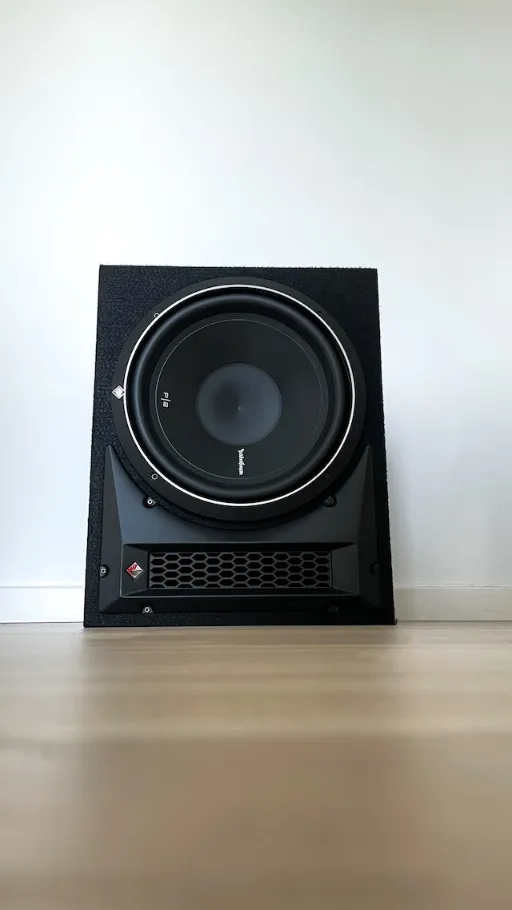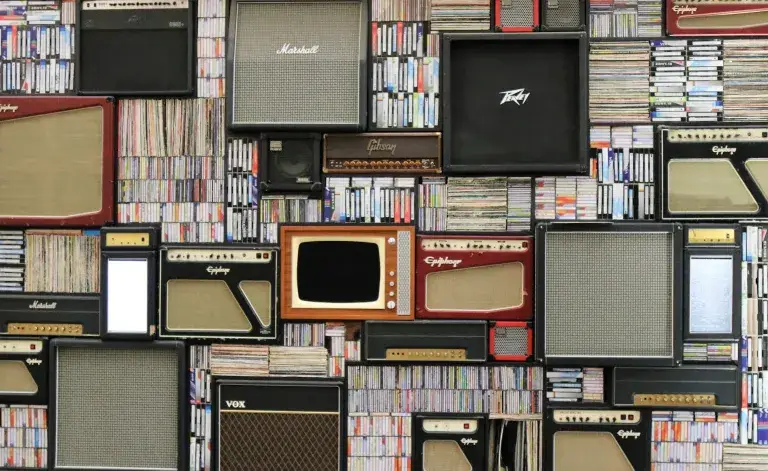Are you interested in improving the sound quality of your bookshelf speakers? A subwoofer is one critical component you are not going to miss. So why exactly do you need to make this crucial addition?
Subwoofers are crucial in improving the bass frequency spectrum, which bookshelf speakers find a challenge to reproduce. Adding a subwoofer takes away the heavy lifting from the bookshelf speakers. And the effect is a compelling experience with a widened sound stage, accurate stereo imaging, and an improved overall sound production quality.
What’s a bookshelf speaker?
Bookshelf speakers hit the middle ground between the floor and portable speakers. Thus, they are ideally designed to rest on elevated surfaces such as shelves, tables, or anywhere else but not on the floor.
The speakers provide better sound quality and are smaller in size, making them ideal for medium-sized spaces. However, if you are considering acquiring one for your living spaces, movies, or games, we have got you covered.
In the following subsections, I will delve into the nitty-gritty about bookshelf speakers and help you navigate through the expansive options available to determine what is suitable for your needs.
What makes a good bookshelf speaker? Determining the right bookshelf speaker.
When confronted with the question, my best usually revolves around the need factor and budget-friendliness.
Of course, a great pair of bookshelves speakers meets your investment needs and maximally serves the purpose. There are several budget options available to help you navigate through the maze. Here are a few factors to consider when choosing the right bookshelf speaker.
Consider the aesthetics
Besides their primary functions, bookshelf speakers are designed for display. So, suppose you have a sense of touch and feel. In that case, I will recommend choosing a design that marries well with your interior design speakers that give more than sound quality.
Consider bookshelf speaker size
Does the speaker fit your space? Consider the size with quality. Usually, the larger the speaker, the quality it gets.
Bookshelf speaker compatibility
How do you want to use your speakers? Do you want to use them to improve the sound systems in your living rooms or professional music production? Ultimately, you want to ensure that what you get seamlessly connects to your devices.
The latest speaker models allow you to connect via USB, HDMI, Bluetooth, and more which is great if you are looking for a space-saving option.
What is the best bookshelf speaker without a subwoofer?
Whether you are gaming, watching movies, or binging Netflix, the benchmark for selecting the best bookshelf speaker remains and lies squarely on how the speakers handle the music. Generally, the greater the bandwidth and the flatter the frequency, the better.
A high-end bookshelf speaker includes a frequency response for a bandwidth of 20Hz to 20KHZ. Additionally, a flatter frequency means the speaker reproduces the sound well, hitting a balance between bass, midrange, and treble sounds.
There are many excellent bookshelf speaker options out there that meet these specifications. Here are just a few:
- ELAC Debut 2.0 B6.2 Bookshelf Speakers, Black (Pair)
- Polk Audio T15 100 Watt Home Theater Bookshelf Speakers
- Edifier R1280DB Powered Bluetooth Bookshelf Speakers
- Edifier R1280T Powered Bookshelf Speakers
- Klipsch R-14M 4-Inch Reference Bookshelf Speakers (Pair, Black)
Bookshelf speakers good and surround sound.
Powerful bookshelf speakers may offer you the best stereo and user experience, but the downside of similar systems that use compact speakers is the lack of bass response.
Subsequently, they lark behind in the incredible immersive surround sound.
While you may be able to hear the bass in some of the high-end bookshelf speakers, you may be missing a lot, and you may not be enjoying the sound/ music as intended by the artist or producer.

Why do bookshelf speakers need a subwoofer for your much-coveted surround sound
If you have great bookshelf speakers in place, you need a subwoofer to boost their low-frequency unidirectional sound.
The subwoofer reproduces low unidirectional low-frequency sound that better adds realism to sound effects like explosions in movies. In addition, subwoofers give you an in-depth subsonic rumble sound that generally improves your surround sound experience.
The bass from your bookshelf speakers may be good, but there is more that comes with a subwoofer that you are missing. You could be missing out on the prominence and depth additions from instruments like drum sets and the bass guitar.
Do I need a bookshelf speaker good for my home theatre?
Setting up your home sounds systems and getting everything right is a rip-roaring challenge. For example, finding the right front speakers for your home theatre system can feel like a dream come true.
So, can you use bookshelf speakers as front speakers for your home theatre system?
Yes, this is entirely possible and a viable option. Adding bookshelf speakers as front speakers for your home theatre work best but when paired with as a subwoofer.
Usually, bookshelf speakers have two drivers, so their bass sound production is quite limited. Adding a subwoofer system acts as the source for bass, ultimately improving and magnifying sound feel.
Do bookshelf speakers need a stand?
When all is said and done, one of the less talked about decisions is whether to get active or passive speakers. As well, another consideration that is most side-lined is considering whether the speakers need a stand.
As I noted early, the speakers are designed to be placed on a raised surface, and while an actual shelf is an option, this does not limit where to place the speaker.
Many, however, prefer using stands because they help raise the speaker to ear level heights helping achieve total tonal balance. If you don’t like stand than you can also read our guideline about how to mount speakers on wall without drilling holes.
Similarly, if you want a joyful experience, even the best soundbars aren’t good enough. Soundbars are convenient and easy to set up, but adding an AV receiver paired with bookshelf speakers and subwoofers takes the sound quality to the next level.
Conclusion
Do bookshelf speakers need a subwoofer? Yes, you need to add a subwoofer to your sound gadget collection. They help boost good quality and help fill the bookshelf speaker limitations. But, above all, they increase sound production and give you a compelling experience.

